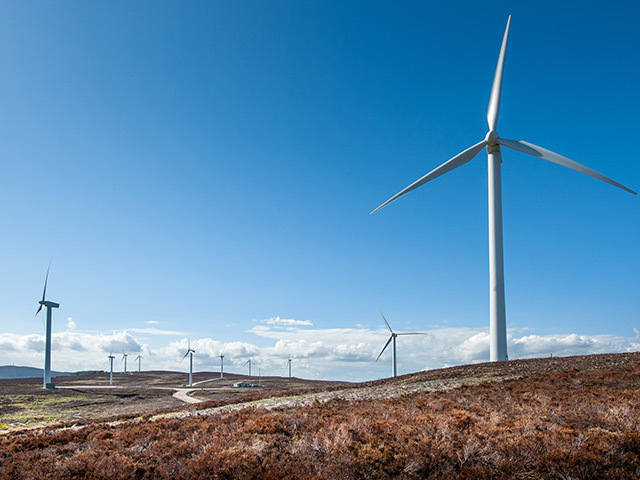
A leading renewables expert said “sooner or later” companies will have no choice but to shift their position on green energy.
Dr Alan Owen, a director for the Centre for Understanding Sustainability in Practice (CUSP) at Robert Gordon University in Aberdeen, spoke to Energy Voice after it was revealed the UK’s biggest energy lobbying group said it would start campaigning for low-carbon alternatives.
He said the move by the body – which represents the big six energy providers – may help to reinforce investor confidence.
Dr Owen said the use of more renewable energy resources could also lead to a rise in energy price.
He said: “Nuclear is more heavily subsidised than renewables, and most of the subsidy is paid to non-UK companies.
“Sooner or later they have no choice; the same applies to any advanced society.
“We need reliable energy sources from somewhere and energy security is actually more important than price.”
Energy UK said last month it now supports the UK government’s phasing out of coal-fired power stations.
Speaking after the publication of Energy UK’s Pathways to 2030 policy document was published, chief executive Lawrence Slade, said the body wants to see more demand reduction, plus regulatory changes, to help support electricity projects and help to balance out the “peaks and troughs” caused by wind and solar power.
Energy UK has also called for more long-term thinking and financing.
Dr Owen said the recent impact of the Conservative led government’s changes to renewable policies had been “confused and uncertain”.
He reiterated the comments made by the body and said energy policy had to be “well thought through” and put in place for the “long-run”.
The renewables expert said: “Energy policy has to be well thought through and put in place for the long-run; it cannot be chopped and changed for short term motivations such as responding to the hill-walking middle classes.
“Roughly speaking, 60% of the UK’s electricity supply is generated from imported fuels, 20% comes from renewables and 20% from nuclear; UK energy policy must respond to energy security not just price and NIMBY’s.”
The engineer, with 25 years’ experience in renewable energy technologies and sustainable development, added that the UK would have to move away from a more decentralised system of energy in the future.
He said: “The National Grid was primarily a response to bombing damage to generators during WW2 and linking generators helped to keep supplies running. Renewables are not really suited to grid
distribution, but they are OK with decentralised systems.
“Many short-term investors have backed away from renewables, but the long-term players know that the nation needs power supplies.
“The French/Chinese collaboration currently building new nuclear in the UK is not necessarily the best way forward for energy security, and the UK taxpayer will pick up the subsidy and decommissioning costs.”
Recommended for you
